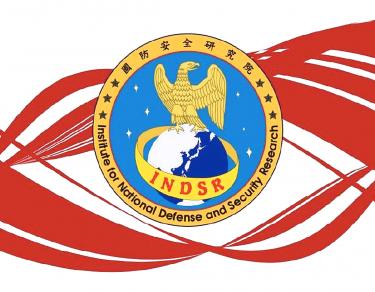China is using local “agents” and intermediary organizations as a front in its cyberwarfare efforts against Taiwan, the Institute for National Defense and Security Research said in an article.
The report, carried by the Ministry of National Defense-affiliated think tank’s monthly gazette and authored by assistant researcher Wu Chun-te (吳俊德), compared Russia’s and China’s cyberwarfare tactics.
As opposed to Russia, which has spent an inordinate amount of time and resources to regain the US’ trust, China has no such problems and can utilize contacts cultivated by its long-running “united front” rhetoric and infiltration efforts, Wu said.
Such efforts, aimed at Taiwanese temple organizations, communities and borough and village wardens, have turned them into “Chinese agents” or intermediaries, Wu said.
Having no language barrier in Taiwan, Beijing sends “fake news” to its intermediaries, who then circulate the information on social networks, such as Facebook and the Line messaging app, he added.
These efforts come in addition to buying Taiwanese-run Facebook pages and hiring local Internet celebrities to launch disinformation campaigns, he said.
Separately, National Taiwan University Department of Criminology assistant professor Shen Pao-yang (沈伯陽) said he has discovered that most online information management companies that run social media accounts are receiving “layered” subcontracts from China.
Most of the orders are subcontracts of subcontracts going up three or four layers and it is difficult to find the source without inquiries, Shen said.
However, most companies make private inquiries, as the intermediaries usually know whether the order came from Chinese sources, Shen added.
The companies are small, usually employing up to six people who work at the firms in addition to their regular jobs, Shen said.
Each firm handles many online fan pages and posts information gleaned from content farms or other fan pages, he said, adding that these groups are most prone to spreading “fake news.”
An analysis has found that the companies are mostly indirectly hired by the Chinese United Front Work Department and, occasionally, China’s Taiwan Affairs Office, Shen said.
There is no definitive proof that the Chinese People’s Liberation Army (PLA) is involved, Shen said.
The Mainland Affairs Council yesterday reiterated that any contact with the Chinese Communist Party, the Chinese government, the PLA, private Chinese organizations or individuals regarding political affairs contravenes the Act Governing Relations Between the People of the Taiwan Area and the Mainland Area (台灣地區與大陸地區人民關係條例).
Offenders could be fined NT$100,000 to NT$500,000 and they could be fined repeatedly, the council said.
Source: Taipei Times - 2019/08/04





















